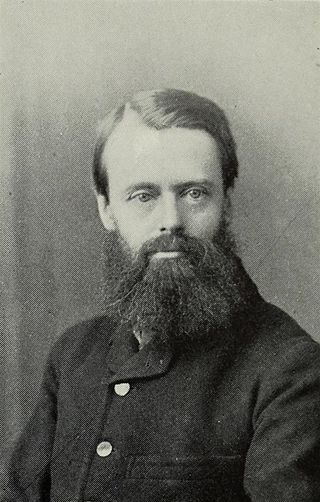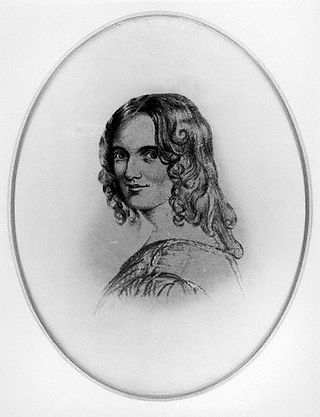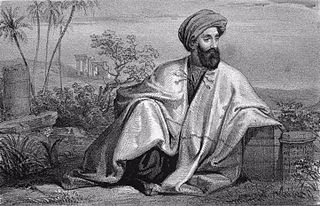
Philip Stanhope Worsley (12 August 1835 – 8 May 1866) was an English poet.

Philip Stanhope Worsley (12 August 1835 – 8 May 1866) was an English poet.
The son of the Rev. Charles Worsley, he was educated at Highgate School, where he made a lasting impression on Gerard Manley Hopkins, a fellow pupil in his boarding house, [1] and Corpus Christi College, Oxford, where he won the Newdigate prize in 1857 with a poem on The Temple of Janus. In 1861 he published a translation of the Odyssey , followed in 1865 by a translation of the first twelve books of the Iliad , in both of which he employed the Spenserian stanza with success.
In 1863, he published a volume of Poems and Translations.
He died at 30 of tuberculosis. [2]
His unfinished translation of the Iliad was completed after his death by John Conington.

Gerard Manley Hopkins was an English poet and Jesuit priest, whose posthumous fame places him among the leading English poets. His prosody – notably his concept of sprung rhythm – established him as an innovator, as did his praise of God through vivid use of imagery and nature.

Robert Seymour Bridges was a British poet who was Poet Laureate from 1913 to 1930. A doctor by training, he achieved literary fame only late in life. His poems reflect a deep Christian faith, and he is the author of many well-known hymns. It was through Bridges's efforts that the poet Gerard Manley Hopkins achieved posthumous fame.
Benjamin Thorpe was an English scholar of Anglo-Saxon literature.

David Binning Monro, FBA was a Scottish Homeric scholar, Provost of Oriel College, Oxford, and Vice-Chancellor of Oxford University.
John Conington was an English classical scholar. In 1866 he published his best-known work, the translation of the Aeneid of Virgil into the octosyllabic metre of Walter Scott. He was Corpus Professor of Latin at the University of Oxford from 1854 until his death.

Richard Watson Dixon, English poet and divine, son of Dr James Dixon, a Wesleyan minister.

Richard Garnett C.B. was a scholar, librarian, biographer and poet. He was keeper of printed books at British Museum from 1890 to 1899.

Thomas Gordon Hake was an English physician and poet.
James Duport, in Latin books Jacobus Duportus Anglus, was an English classical scholar.
In Greek mythology, Agapenor was a leader of the Arcadians in the Trojan war.

Sarah Fuller Flower Adams was an English poet and hymnwriter. A selection of hymns she wrote, published by William Johnson Fox, included her best-known one, "Nearer, My God, to Thee", reportedly played by the band as the RMS Titanic sank in 1912.
Aegiale or Aegialeia or Aegialia was, in Greek mythology, a daughter of Adrastus and Amphithea, or of Aegialeus the son of Adrastus, whence she bears the surname of Adrastine. One account refers to her as Euryaleia.
In Greek mythology, Agenor was a Trojan hero.
Jeremiah Garnett was an English journalist, active in the politics of London and the founding of The Manchester Guardian alongside his nephew Anthony Garnett.
Arcesilaus in Greek mythology, was a son of Lycus and Theobule, brother of Prothoenor, and was the leader of the Boeotians in the Trojan War. He led his people to Troy in ten ships, and was slain by Hector.
In Greek mythology, Iamenus was a Trojan hero in the Iliad. Together with Asius, he was slain by Leonteus during the attack of the Trojans on the camp of the Greeks.
Thomas Wade was an English poet and dramatist.
Henry George Keene was an English employee of the East India Company, as soldier, civil servant, and orientalist. He was known as a Persian scholar, and also was a churchman and academic.
Hugh Hughes was a Welsh poet.

Charles Lewis Meryon was an English physician and biographer.